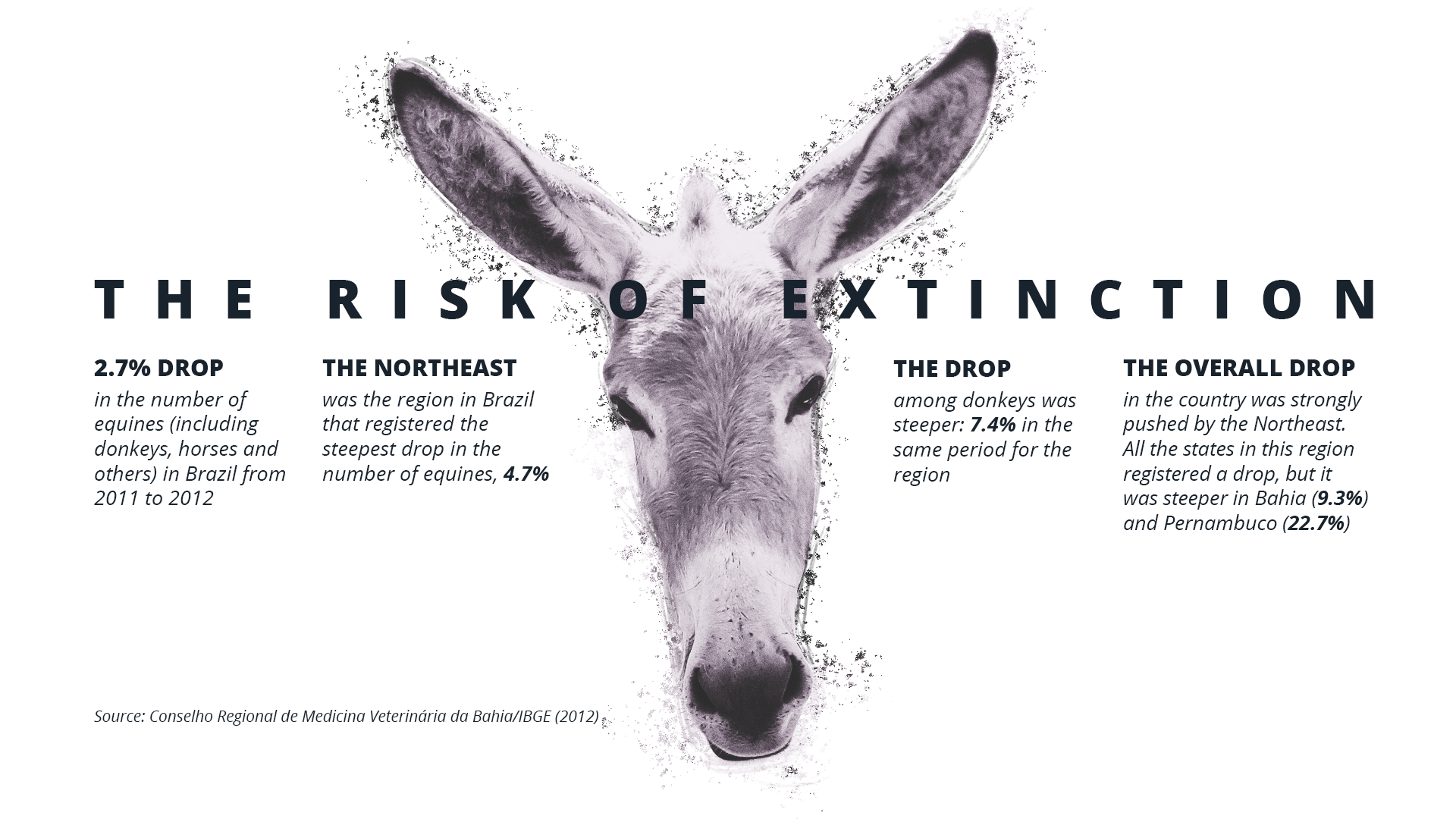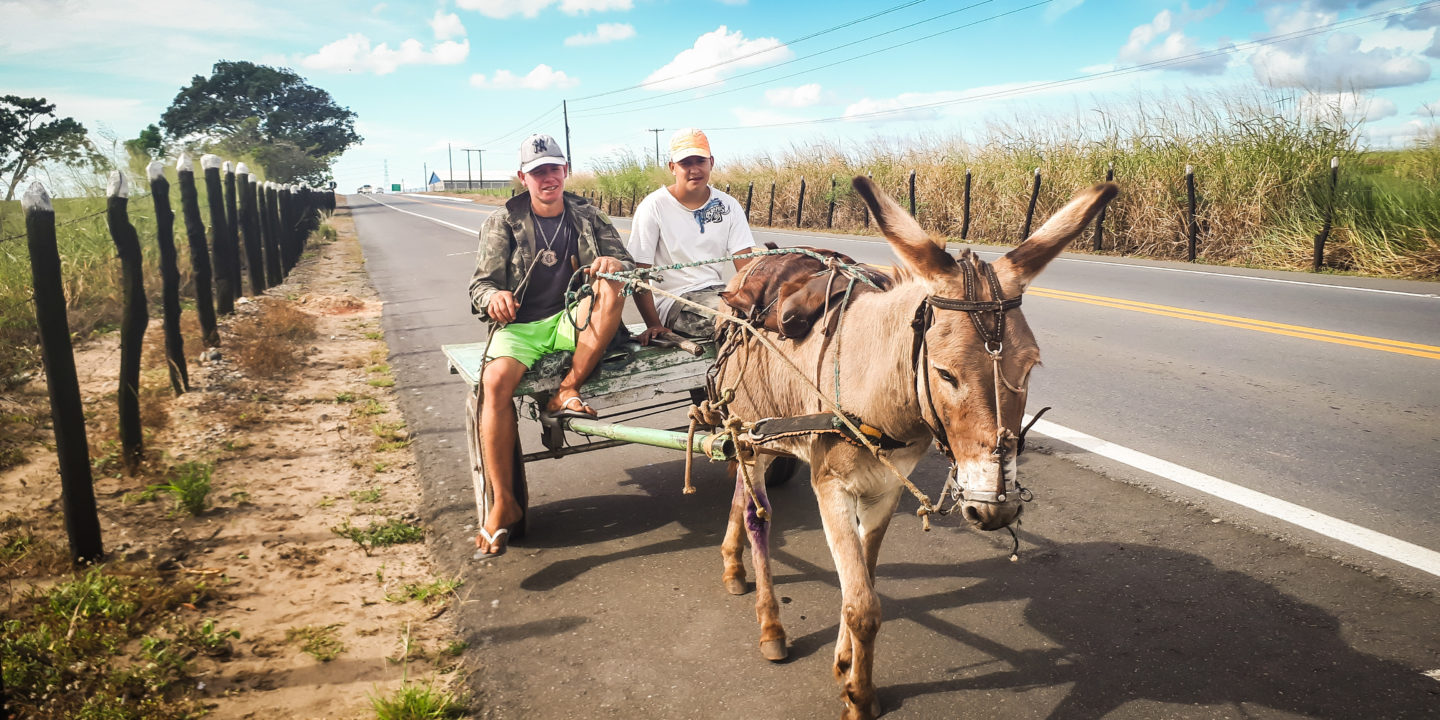The slaughter of donkeys in the northeastern Brazilian state of Bahia became subject to new regulations in June 2016, as part of a deal between Brazil and China.
In China, donkeys are sought for meat but more so for their hides, which are boiled to produce ejiao, a gelatin used in traditional Chinese medicine to treat everything from aging to lack of libido in women. China produces 1.8 million hides each year but consumes four million. With demand rising, the country has been seeking deals with various developing countries.
However, in November 2018, animal rights groups won a legal case to ban the slaughter of donkeys in Bahia, adding Brazil to the list of several countries to have taken similar measures.
The end of the donkey in the Northeast?
The June 2016 ordinance regulating the slaughter of donkeys, mules, and hinnies across Bahia triggered a heated legal, ethical, and economic dispute. At first glance, the measure was a move to solve the problem of these animals causing traffic accidents and spreading disease.
Although an important historical symbol and traditional mode of transport in Brazil’s Northeast, donkeys have been largely abandoned in recent years, in favor of motorcycles. For fear of causing accidents, the Ceará state traffic department rounds up the abandoned animals. Over the New Year holiday, 115 donkeys were collected.
But the ordinance also gave the green light for the export of donkey meat and hides to China—trade that then-Agriculture Minister Kátia Abreu said could reach roughly USD 3 billion a year.
While unthinkable to many in Brazil’s Northeast—which has a strong cultural attachment to the animal—donkey meat is a common ingredient in Chinese street food, consumed in burgers and other forms, as one would eat beef.
Days after the ordinance took effect, refrigeration company FrigoCezar began operations in the Bahia town of Miguel Calmon. In the first week alone, approximately 300 donkeys were slaughtered. A year later, on June 26, 2017, Bahia state governor Rui Costa ceremonially opened the Frinordeste meatpacking plant.
Frinordeste is a joint venture between a Brazilian company and two Chinese partners, Zhen Yongwei and Ran Yang, who both live in China and could not be reached for comment. The venture directly created more than 100 new jobs, and was expected to produce and export 300 tons of meat to the Asian market each year.
Soon after Frinordeste, two more meatpacking plants began slaughtering donkeys in Bahia: Cabra Forte in Simões Filho and Sudoeste in Itapetinga, in December 2017 and August 2018 respectively.

From an economic point of view, the emerging production chain was doing well. The three packing plants—the only ones in Brazil authorized to slaughter donkeys—were responsible for...


 Search
Search






































